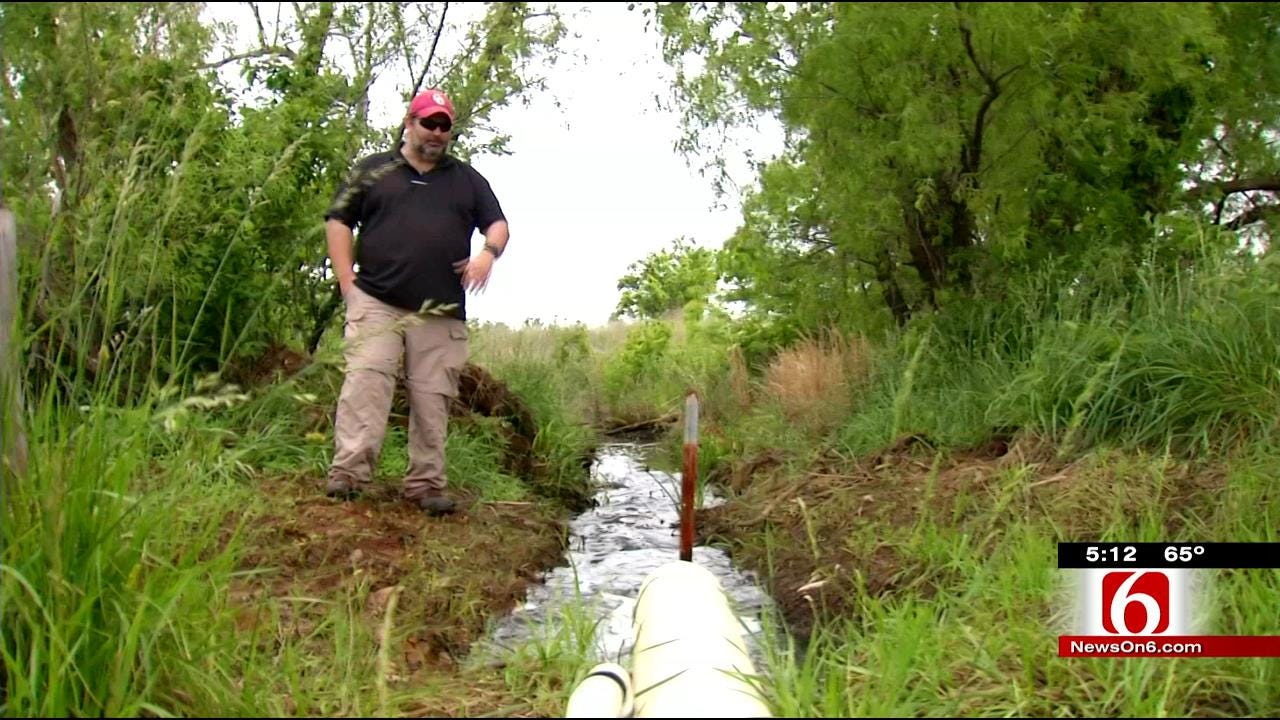Scientists Finding Way To Clean Up Contaminated Tar Creek Ground Water
Researchers are making progress in cleaning up one of the country's largest environmental waste sites in northeast Oklahoma. Tuesday, May 19th 2015, 6:24 pm
Researchers are making progress in cleaning up one of the country's largest environmental waste sites in northeast Oklahoma. They've found a way to treat the contaminated ground water flowing underneath the Tar Creek Superfund Site.
Professors and students from the University of Oklahoma created a water treatment system that filters out toxic chemicals.
When people think of the Tar Creek Superfund Site, they think of chat piles - leftovers from over a century of mining - but there's another problem: the old abandoned mines are full of water carrying metals up to the surface into our streams and rivers.
For years, ground water laced with toxic heavy metals bubbled up from old bore holes in Commerce. It's estimated that 250 gallons of water flow out of the holes every minute.
Engineers with University of Oklahoma's School of Civil Engineering and Environmental Science found a solution to clean the contaminated water flowing right into Tar Creek.
"I want to see it run clear, and I think with systems like this we can do it," said Dr. Robert Nairn, University of Oklahoma.
9/22/2014 Related Story: EPA: Lead Levels Falling, But Still Much To Do At Tar Creek Superfund
Nairn and his graduate students maintain the Mayer Ranch Passive Treatment System. The ground water goes through a three week long cleaning process before being fed into Tar Creek.
The treatment facility relies on gravity and nature to clean the water.
"So by the time the water gets through the entire system and flows out back into the little tributary to Tar Creek, we've taken iron and zinc concentrations to very low levels - although we can still measure them - and cadmium, lead and arsenic to below detectable limits we can't measure them in our laboratory," Dr. Nairn said.
Nairn says the cleaner water bringing wildlife back.
"We're actually showing improvements in the stream water quality, and I think that's the kind of thing people are interested in especially when we show them not just the chemistry changes, but the fact that we've got fish back," said University of Oklahoma's Dr. Robert Nairn.
The passive water treatment system just one of the many efforts teams are doing to clean up what the EPA says one of the largest toxic waste clean up efforts in the country.
"We're showing here that they are able to be recovered, we are able to treat those waters and we are able to do it passively, we can do it cost effectively and we can do it long term," he said.
This filtration project only accounts for about 10 percent of all the contaminated in the Tar Creek project. Researchers hope that sometime this fall they'll use grant money to work on another filtration system upstream.
More Like This
September 29th, 2024
September 17th, 2024
Top Headlines
December 26th, 2024
December 26th, 2024
December 26th, 2024
December 26th, 2024












